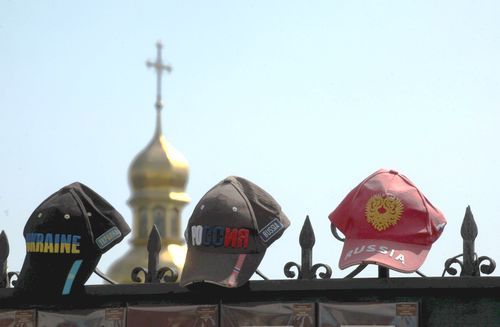Russian customs delay all Ukrainian exports
The Ukrainian Federation of Employers estimates losses at 2-2.5 billion US dollars
The Ukrainian Federation of Employers (UFE) has requested Prime Minister Mykola Azarov to help as soon as possible to solve on the intergovernmental level the problems that Ukrainian exporters are facing at Russian customs offices, The Day was told at the federation’s press service. The UFE has already sent a letter to this effect. Besides, the organization’s leadership raised this matter before the prime minister during last Wednesday’s Cabinet session.
According to the UFE, at 00.00 August 14 all, without an exception, Ukrainian exporters were added to the forty enterprises that had been put on the risk profile of the Russian Federal Customs Service’s risk management system in July this year. Moreover, risk prevention measures were further strengthened. The UFE emphasizes that this in fact means a delay in Ukrainian export for an indefinite time – for weeks or even months.
The Roshen case was not the end of it, the UFE says. Ukrainian exporters began to encounter clearance problems at Russian customs offices in the 20s of July. The confirmation of this is the complaints that the UFE has been receiving from enterprises in the past two weeks. The managements of these enterprises inform the federation about problems at the Russian customs. At present, the vehicles that carry Ukrainian-made goods are subject to unwarranted total inspection on Russia’s border, which includes offloading, reweighing, and reloading the cargo.
The UFE argues that this results in a longer demurrage of railroad cars and other transportation means and, consequently, in higher prices, disruptions in the delivery, and damage of goods. This also undermines the position of Ukrainian commodity producers on the Russian market which is critically important for many Ukrainian businesses, as it allows earning current assets and paying wages to employees.
Before these events, the UFE assessed Ukrainian exports to Russia in the second half of this year at 8.5 billion US dollars. As a result of the failure to fulfill some contracts, price rises, and delays in fulfilling some other export agreements, these actions of the Russian side may cause Ukraine to lose an estimated $2-2.5 billion, depending on the course of events, in the second half of this year alone. Accordingly, the balance of payments deficit will also rise by the same amount. It can also be assumed, the UFE says, that this will result in a new fall of the industrial output index by 7-8 percentage points and in the reduction of the real GDP by 1.5 percent.
Undoubtedly, very few Ukrainians believe that the “chocolate and the cheese wars” with Russia were provoked by the low quality of Ukrainian products. What looks more credible are two other moments about which The Day was told by the sources involved in negotiations over trade with Russia. The first is linked to corruption: imposing a “black spot” on one producer or another, the importer demands a “kickback” for lifting it. Not a single businessman will be surprised with this behavior of post-Soviet governmental bodies. The second is political. Onishchenko has long been known in expert circles as “the Kremlin’s sanitary-political tool” which official Moscow pulls out when it wants to win over a tough customer – as it was the case with Belarusian cheese and beef (for details see “Partners Don’t Do So,” Den, August 23, 2013) or with Ukrainian cheese and candies that “want to go to Europe.”
The Day has already reported that Moscow was to host this week negotiations between an official Ukrainian governmental delegation composed of Ihor Prasolov, Minister for Economic Development and Trade, Mykola Prysiazhniuk, Minister for Agrarian Policies and Food, and Gennady Onishchenko, Chief Sanitary Inspector of the Russian Federation and head of the Federal Service for Supervision of Consumer Rights Protection and Human Welfare (Rospotrebnadzor). The agenda of these talks is secret. It is only known for sure that one of the items to be discussed is the return of the Ukrainian factory Roshen’s products to the Russian confectionary market. The Rospotrebnadzor chief himself has confirmed this. But the Ukrainian ministers asked The Day not to comment too early either on the agenda or on the position the Ukrainian delegation may take at the Moscow talks because this “revelation” may damage “our interests.” Let us hope that joining the Customs Union will not be in “our interests” either.






